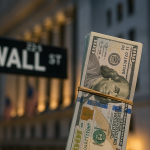Signs of economic strain are becoming more evident among U.S. consumers and businesses. While the stock market shows resilience, many industries, from retail to technology, face unique challenges and developments. This complex economic landscape underscores the balancing act between market optimism and consumer caution.
In previous reports, the resilience of major tech companies was highlighted as they navigated economic uncertainties with strong earnings and innovation. However, smaller businesses and traditional sectors faced more pronounced struggles. This disparity in performance between tech giants and other sectors has only intensified, reflecting broader economic trends. Additionally, past discussions around the economic impact of inflation and consumer spending cuts have set the stage for current observations.
U.S. consumers are showing signs of financial pressure, illustrated by recent developments at Olive Garden, which has again raised menu prices. This pricing adjustment is a response to increasing operational costs and signals that casual dining chains are feeling the pinch of tighter consumer budgets. Meanwhile, major stock indices like the S&P 500 and Nasdaq Composite have recently hit record highs but ended the week with minimal gains, suggesting a tentative market sentiment.
High-Stakes Market Dynamics
Tech giants Nvidia, Microsoft (NASDAQ:MSFT), and Apple (NASDAQ:AAPL) now constitute a trillion-dollar trio, reflecting the high stakes and significant investments in the technology sector. Nvidia’s recent ascension to the top of the global market valuation leaderboard, surpassing Microsoft, underscores the competitive dynamics within the tech industry. Despite this, the stock market’s weekly performance indicates a cautious investor approach amid broader economic concerns.
Challenges for Traditional Retailers
Traditional retail continues to struggle, exemplified by the abrupt closure of several Pizza Hut locations in one state and Rite Aid’s ongoing Chapter 11 bankruptcy proceedings. Tupperware’s decision to shut down its last U.S. plant also highlights the challenges faced by legacy brands in adapting to modern market conditions. These closures reflect a broader trend of consolidation and restructuring within the retail sector.
The IRS’s move to close a popular tax loophole used by wealthy Americans signifies an effort to address fiscal imbalances. This regulatory action aims to curb tax evasion and increase fairness in the system. Additionally, Bitcoin proponents Cameron and Tyler Winklevoss have thrown their support behind former President Trump, contributing significant Bitcoin amounts to his campaign. This endorsement illustrates the intersection of cryptocurrency and political influence.
Key Inferences
– Consumer spending remains under pressure, affecting various sectors.
– Tech giants continue to dominate the market, contrasting with retail struggles.
– Regulatory changes and political endorsements highlight evolving economic and political landscapes.
Economic indicators present a mixed picture, with tech companies thriving and traditional retail facing significant challenges. The stock market’s record highs juxtaposed with consumer spending slowdowns highlight the complexities of the current economic environment. As regulatory changes and political endorsements shape the landscape, stakeholders must navigate these shifts carefully. This dynamic underscores the need for strategic planning and adaptability across all sectors.










